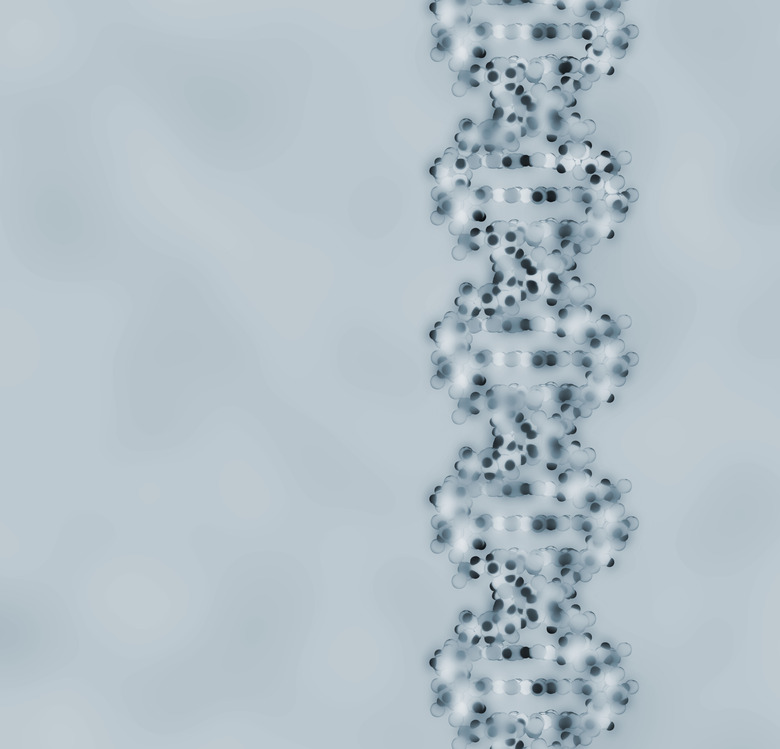Loss Of Individuality Due To Genetic Engineering
The advancement of genetic science has brought about some controversy. As we better understand which genes correlate to which traits in an organism, our ability to intentionally modify the traits of that organism increases. Genetic engineering poses a risk to our concept of individuality, as individuality is based on some degree of biological difference. However, genetic engineering does not give the scientist control over the human environment, which is another source of variation.
Reasons for Genetic Engineering
Reasons for Genetic Engineering
Genetic engineering's potential lies in the ability to isolate certain traits and promote or exclude them from the lifeline of a species. This is accomplished through direct modification of an organism's genome, and is already widely used in agriculture. Genetic engineering is especially useful in medical science, where the genetic understanding of what causes a specific illness or defect can lead to the prevention of that condition on a potentially species-wide level.
Importance of Genetic Variation
Importance of Genetic Variation
Genetic variation is important for both scientific and sociological reasons. In a population of genetically identical individuals, one disease could wipe out all organisms. Instead, genetic variation allows for the process of natural selection. Some organisms would die while others, with superior genes for a specific circumstance, would survive. Ultimately, genetic variation enables a species to adapt to potentially harmful changes in the environment. Furthermore, genetic variation can encourage some level of competition among organisms. This helps a species reproduce and evolve.
Risks of Genetic Engineering
Risks of Genetic Engineering
The growing possibilities of genetic knowledge and engineering result in a number of possible changes to human life. At their extreme, these scenarios form the basis for a number of science fiction books and movies. As an increasing number of humans have similar traits, the number of unique individuals may decrease. A completely genetically-engineered human race would look very different from the social world we know. In such a scenario, humans may not all look identical, but they would have similar sets of strengths, limitations and vulnerabilities.
Phenotypes and Genotypes
Phenotypes and Genotypes
The genetic makeup of an organism is called its genotype, whereas the outward manifestation of a trait is called its phenotype. Genetic engineering occurs on the level of the genotype, in chromosomes and DNA. Phenotypes can have a basis in genotypes. However, phenotypes are also influenced by the environment. For example, the color of a flamingo is caused by the food that it eats; flamingos are born white, but change to pink based on their diet. Due to the environmental aspect of phenotypic variation, organisms that are genetically identical can have apparent differences in traits.
Sources of Individuality
Sources of Individuality
The environment in which organisms live injects some individuality into a population. As different organisms react to different stimuli, their experiences change. This is especially the case in human populations; even genetically-identical humans will have a different set of social experiences and therefore develop different personalities. Hence, the individuality of human beings is not at a significant risk due to genetic engineering. Furthermore, genetic mutations can occur during the development of an organism or from an encounter with chemicals or radioactive substances. These mutations can create genetic variation where none existed previously.
Cite This Article
MLA
Murmson, Serm. "Loss Of Individuality Due To Genetic Engineering" sciencing.com, https://www.sciencing.com/loss-individuality-due-genetic-engineering-23468/. 24 April 2017.
APA
Murmson, Serm. (2017, April 24). Loss Of Individuality Due To Genetic Engineering. sciencing.com. Retrieved from https://www.sciencing.com/loss-individuality-due-genetic-engineering-23468/
Chicago
Murmson, Serm. Loss Of Individuality Due To Genetic Engineering last modified August 30, 2022. https://www.sciencing.com/loss-individuality-due-genetic-engineering-23468/
